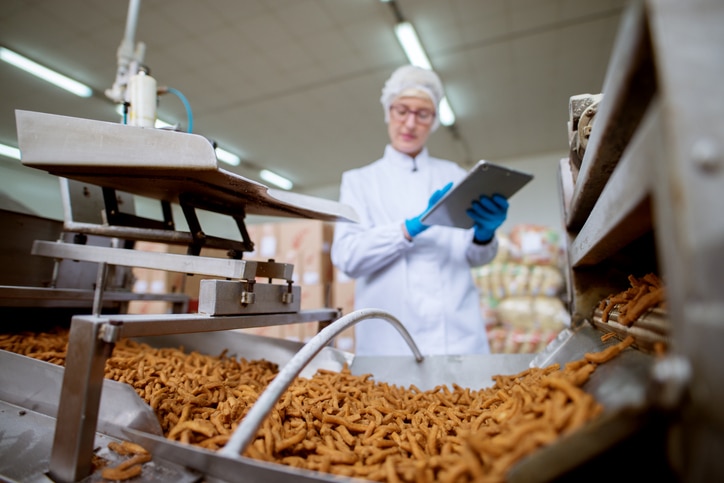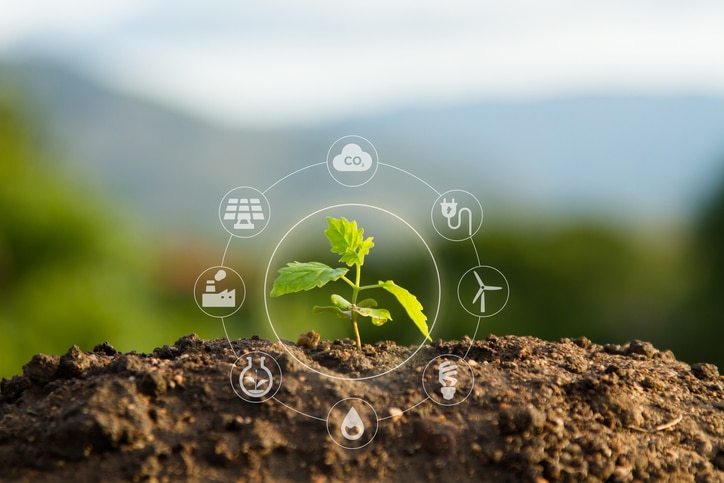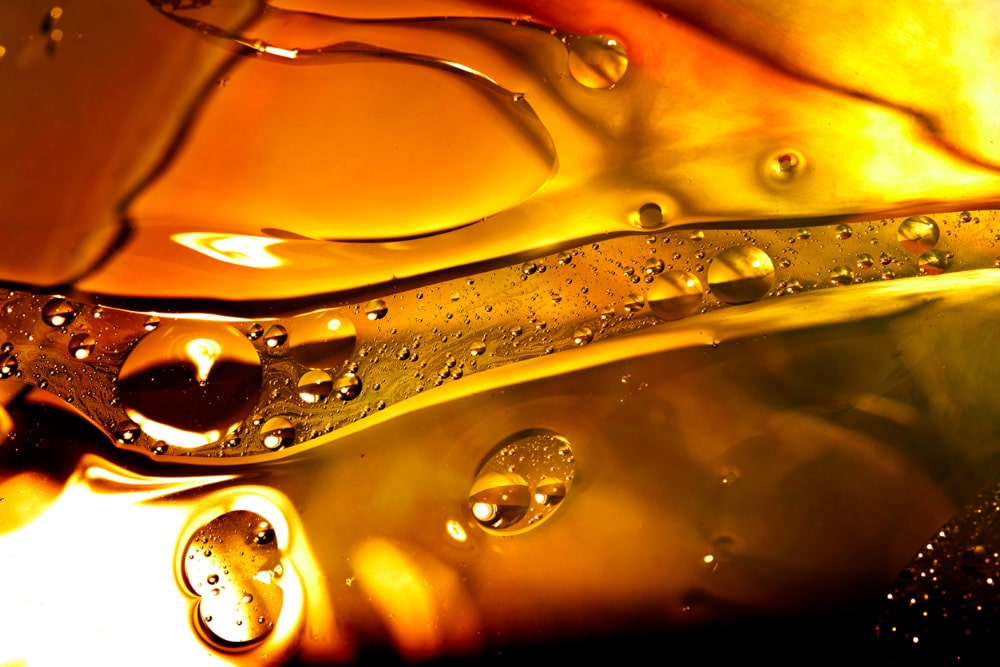Industrialization, mass production, and the population boom were all signs of progress. While the country rose and developed into something its national ethos idealized, the signs of progress also led to surplus and surplus of mass-produced foods, with the food industry not focusing on sustainability.
With 1.3 gigatons of food—one-third of all food made—being discarded and wasted globally according to the UN, imagine how many things you can do with almost all of those gallons of fats and oil alone—how many products you can create with that wasted grease?
This stresses the need for not just food sustainability, but the assurance that no byproduct in food production is wasted during the process. The processing, collection, and recycling of yellow grease—used animal fats and cooking oils—becomes paramount in reducing waste.
A Greasy History

The US is a nation fueled by the food industry. Considering that the entirety of the food industry itself is a $6.02-trillion industry alone. $798 billion of that came from the restaurant industry and fast-food restaurants make up more than 30% of the total revenue of the latter.
Urbanization, increasingly sedentary lifestyles, and income growth are all factors that have a role to play in the changing food consumption patterns.
You can imagine how much oil is used in every meal, every day, and every year. From 2000 BC to Proctor & Gamble’s introduction of Crisco, edible oils have been part of the human diet for many years.
Data from the ERS said that consumption of fats and oils in the country was trending upward from 1970-2010.
Historically speaking, animal fats have long been used in America. The industrialization of hog butchering used to leave no byproduct unused. In the 1800s refrigeration wasn’t invented yet and salt-cured pork was a mainstay in most diets.
Cincinnati—America’s very own “Porkopolis”—devised the pig “disassembly” line that Henry Ford reverse-engineered for his car factories. Even in Chicago, the industrialized butcher line through the Union Stock Yard thrived.
The materials left after pork was processed were sent to tanneries, upholsteries, clothiers and bootmakers. The fat itself was a very hot commodity, being fashioned into various products including candles, soap, food products and animal feedstuffs. But of course, the industrialization led to the proliferation of mass production we know today. And with mass production came a mass surplus of leftover material, such as yellow grease.
It Was All Yellow
Yellow grease, by definition, is the common byproduct of food production. It’s technically the used cooking oil from this like deep fryers and industrial-sized griddles that are extracted for disposal. Used vegetable oil and animal fats are a couple of examples of yellow grease.
Disposal and recycling are regulated by the government. They can cause devastating physical effects, be toxic, produce rancid odors, and have other undesirable effects. While they may seem less harmful than your typical crude oil, these substances can be extremely deadly to animals—both land and aquatic—when improperly disposed of.
Since the government has regulations regarding fats and oil, the food manufacturers can’t just dispose of their cooking oil haphazardly. Much like how you can’t just throw your used cooking oil outside or pour it down the drain. The EPA requires those who handle these oils to practice proper disposal. This is why restaurants, food manufacturers and the like employ companies offering yellow grease and UCO pick-up and collection services to collect these and other forms of greases.
Disposal of used cooking oil and animal fat by means of burying, sending to a landfill, or using as compost is illegal. Fat is generally bad for compost, anyway, and letting it flow into the ground may release harmful, toxic fumes over time.
These compounds should be treated like how you’d treat petroleum and non-petroleum oils.
Similarly, pouring your yellow grease into the drain pipes can cause some unseen consequences to sewage systems. Enough collection of fat, oil, and grease, combined with a mass of non-biodegradable matter (i.e. wet wipes) will form fatbergs. From the name itself—it’s a portmanteau of fat and iceberg—it’s an unholy accumulation of waste fusing into a mass of greasy, fat congealed mess.
Grease Collection and Recycling

With grease collection, food manufacturers, restaurants and other companies that use vegetable oil and animal fats can properly and legally get rid of the unwanted materials. But ask any grease collector about why they collect these things and they’ll say that there’s gold in grease. Just think of all the fast-food restaurants scattered across the US. Think of how many pounds of used cooking oils and animal fats the manufacturers who send them their food have.
Collecting the grease is one thing; processing it to become a usable product is another. Liters of used cooking oil and pounds of animal fat will be either properly disposed of according to EPA standards or taken to processing plants to be transformed into something new—breathing new life into something originally deemed for disposal.
When you decide to take this route with your yellow grease, that’s where the money comes in. In many industries, yellow grease actually has many uses.
More often than not, used cooking oils are used to produce biofuel, filling up America’s alternative energy needs. Environmentally speaking, it burns 80% cleaner than fossil fuels and has a smaller carbon footprint than corn ethanol (which is used for ethanol-based fuels). Since it’s a result of food processing, it doesn’t disrupt food supply nor production.
Of course, when it comes to grease collection, it’s not just yellow grease that such companies try to buy off from food manufacturers. They can also purchase brown grease (those trapped in grease traps), tallow and more. When it comes to used vegetable oil, they can purchase canola oil, corn oil, soybean oil, and more. All these, when rendered, contribute to the creation of sustainable biofuels.
The True Treasure in Grease Collection
Grease collectors will happily pay for all the yellow grease produced by businesses like yours. It’s a very lucrative industry that takes advantage of a much-underestimated commodity. Selling your used cooking oil to a professional can actually bring in another stream of revenue for your business.
With the modernization of almost every industry in the country comes overproduction and, in the food industry, it’s becoming a burden. In 2018, US farmers were overproducing corn and wheat, lowering the prices and increasing the overall waste produced.
Overproduction only leads into resource wastage. While grease collection companies are ready to jump on the opportunity to grab every ounce of used cooking oil and animal fat they can get, what happens when overproduction finally catches up?
One way to prevent this problem is vigilance. Every business—may it be a restaurant or a manufacturing plant or a bakery—should be vigilant and determined to reduce their waste and create sustainable processes.
Imagine a future with no-waste production cycles. All the resources used and all unwanted materials sent to proper channels to be rendered, recycled or reprocessed into something useful again.
Whether yellow grease is converted into biofuels or turned into candles, animal feed, fertilizer, soap, etc., collection companies know the real score. They know these products can be profitable, but the true treasure the sustainability and finding new uses for something that would’ve otherwise been chucked away by the industry that profited from it.
Filling the Demand for Grease Disposal
Here at GF Commodities, we aren’t a massive company but we still view ourselves as a major player. We know that there’s a demand for yellow and brown grease. We also know that business owners are itching to secure more revenue and become more sustainable. We understand and appreciate the value in repurposing used cooking oil and animal fats.
Our brand isn’t just interested in buying or selling whatever grease you have, unlike massive corporations. We believe in creating long-lasting business relationships with our clientele. We want you to feel comfortable selling your used cooking oils and animal fats to us. For that, we give you the peace of mind that each barrel of oil you sold or gave us is processed or disposed of according to EPA standards and you get the best bang for your buck.
Our prices match 100% of the spec weight of the oils you provide—no hidden costs, all-inclusive price structure, all transparent. Whether you have brown grease, yellow grease, corn oil, canola oil, choice white grease or tallow, we make the most of the oil you give us.
GF Commodities brings high-quality yellow grease and used cooking oil collection service in almost every state in the country and in some parts of Canada. Talk to us today to find out what our services can do for your business.
For inquiries about our services click here or call Dan Kozubek at 816-812-8685.



